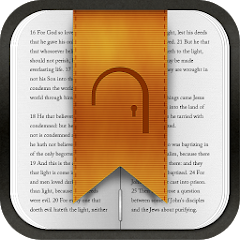Continua após a publicidade
Tempo: um conceito elusivo que intrigou e deixou perplexos filósofos, cientistas e pessoas comuns. Nós o medimos, vivemos por ele e, ainda assim, ele realmente existe? Essa questão gerou intenso debate na comunidade científica e continua sendo um tópico de profunda contemplação no campo da física. Indivíduos estimados como Albert Einstein e Stephen Hawking lutaram com esse mistério, fornecendo teorias fascinantes que desafiam nossa percepção da própria estrutura da realidade.
Como profissional com doutorado em Biotecnologia, e com mais de 15 anos de experiência em escrever artigos científicos e técnicos meticulosos e precisos, encontro-me cativada por esse enigma. Eu sou a Dra. Ana Lucia e neste discurso, vamos nos aprofundar nessas teorias, sondando a natureza intrincada do tempo, uma entidade tão integral às nossas vidas e, ainda assim, tão incompreensível.
Continua após a publicidade
Nós nos aventuraremos no reino da mecânica quântica e da relatividade geral, explorando a teoria da relatividade de Einstein, que trouxe à tona o conceito de tempo como a quarta dimensão em nosso universo. Também examinaremos a teoria de Hawking do "tempo imaginário", que propõe que o tempo não existia antes do Big Bang. Essas teorias, embora desafiadoras, apresentam uma perspectiva intrigante sobre nossa compreensão do tempo.
No entanto, não seremos meros espectadores nesta jornada. Sua perspectiva é essencial para esta exploração. Você, o leitor, é uma parte essencial desta conversa científica. Portanto, enquanto navegamos neste terreno complexo, convido você a questionar, ponderar e desafiar essas teorias. Afinal, a curiosidade não é a pedra angular da investigação científica? Teorias sobre o tempo: ele realmente existe? Vamos viajar juntos para o cerne desta questão.
Continua após a publicidade
Explorando teorias sobre o tempo
O tempo é um conceito que intriga filósofos, cientistas e pensadores há séculos. Muitas teorias foram propostas para explicá-lo, cada uma com sua perspectiva única. No entanto, a questão enigmática permanece – o tempo realmente existe?
A Natureza do Tempo
Nossa experiência cotidiana indica que o tempo é uma entidade real. Vemos o tempo passando conforme o sol nasce e se põe, conforme envelhecemos, conforme nossos relógios tiquetaqueiam. Essa compreensão linear e unidirecional do tempo é frequentemente chamada de "tempo newtoniano", seguindo a percepção de Sir Isaac Newton do tempo absoluto que flui a uma taxa constante, independente de quaisquer observadores ou eventos.
No entanto, essa perspectiva foi fundamentalmente desafiada pela Teoria da Relatividade de Albert Einstein. De acordo com Einstein, o tempo não é absoluto, mas relativo. Ele está entrelaçado com o espaço, formando um tecido quadridimensional conhecido como espaço-tempo. Einstein argumentou que o tempo pode ser distorcido e esticado pela gravidade, levando à conclusão alucinante de que o tempo pode correr mais rápido ou mais devagar dependendo de onde você está e quão rápido você está se movendo.
O tempo realmente existe?
A questão 'o tempo realmente existe?' não é tão direta quanto parece. Para responder a isso, precisamos nos aprofundar em duas visões contrastantes – Realismo e Antirrealismo.
Realismo Sobre o Tempo
Os realistas argumentam que o tempo é uma característica objetiva da realidade. Eles acreditam em um universo onde o tempo flui independentemente, e os eventos ocorrem em uma sequência ordenada. Essa visão é apoiada por nossas experiências comuns e pela perspectiva newtoniana do tempo.
Anti-Realismo Sobre o Tempo
Ao contrário, os antirrealistas afirmam que o tempo não existe independentemente, mas é uma construção humana. Eles argumentam que nossa percepção do tempo é um resultado de nossa consciência, uma ferramenta que criamos para dar sentido às nossas experiências. Para os antirrealistas, o tempo nada mais é do que uma ilusão.
Principais argumentos teóricos

Vários argumentos importantes foram apresentados em apoio às visões realistas e antirrealistas sobre o tempo:
- A Teoria do Universo em Bloco: Essa teoria sugere que o passado, o presente e o futuro existem todos simultaneamente, e estamos apenas nos movendo através deles. Ela apoia a ideia do tempo como uma dimensão, muito parecida com o espaço.
- Mecânica Quântica: De acordo com a mecânica quântica, o tempo não existe nas menores escalas de partículas. Isso apoia a visão antirrealista.
- Entropia e a Flecha do Tempo: O conceito de entropia sugere que o tempo está ligado à ordem e à desordem no universo, fornecendo uma direção ou "seta" do tempo.
O tempo existe na física?
Embora o tempo tenha um papel crucial na física, das leis de Newton à relatividade de Einstein, sua existência fundamental ainda é debatida. No reino da mecânica quântica, o tempo não existe, pelo menos não da forma como o percebemos.
Além disso, algumas teorias da gravidade quântica sugerem que o tempo pode não ser fundamental. Em vez disso, ele pode emergir de entidades mais básicas. Essa visão, conhecida como "emergentismo temporal", postula que nossa percepção do fluxo do tempo é resultado de processos quânticos subjacentes.
Explorando o Tempo: Uma Jornada Contínua
O tempo, como conceito, continua a nos confundir. Ele se estica e encolhe, para e começa, existe, e ainda assim não existe. À medida que mergulhamos mais fundo nos reinos da física e da filosofia, podemos lentamente desvendar esse mistério. Ou talvez, possamos perceber que o tempo, em seu sentido mais verdadeiro, é ainda mais enigmático do que poderíamos compreender.
O que você acha – o tempo realmente existe, ou é meramente uma ilusão criada pela nossa consciência? A exploração do tempo e sua existência é uma jornada fascinante e complexa, que continua a cativar nossa curiosidade coletiva.
Conclusão
Concluindo, nossa exploração em teorias sobre o tempo e sua existência provou ser tanto esclarecedora quanto profundamente desafiadora. Essas discussões são vitais, pois expandem os limites de nossa compreensão, nos convidam a questionar a própria estrutura de nossa realidade e enfatizam a complexidade e a grandeza do universo que habitamos.
O tempo realmente existe? É uma questão que tem, e continuará a, confundir as maiores mentes da área. O fato de ainda estarmos lutando com um conceito tão elusivo séculos após o início da física como disciplina diz muito sobre a enormidade deste tópico. Teorias abundam, cada uma oferecendo sua própria perspectiva única e contribuindo para a rica tapeçaria do discurso intelectual sobre o tempo.
Como vimos, a natureza do tempo está intrinsecamente ligada às leis que governam nosso universo, e essa conexão fornece uma dica tentadora da possível existência de uma verdade mais profunda e fundamental que ainda está para ser descoberta. Devemos continuar a lutar por clareza e precisão, usando todas as ferramentas à nossa disposição para desvendar os mistérios do tempo.
Espero que você, como leitor, tenha achado esta exploração informativa e instigante. Seu envolvimento nessas discussões é inestimável, e convido você a continuar ponderando sobre este tópico e suas implicações. Afinal, à medida que nos aprofundamos nas complexidades do tempo, quem sabe que verdades profundas podemos descobrir?
Ao concluirmos esta exploração, quero agradecer seu tempo e atenção. Sua curiosidade e abertura a ideias complexas realmente agregam valor a esta discussão. Estou ansioso para nossa próxima jornada intelectual juntos. Lembre-se, cada tique-taque do relógio nos aproxima da próxima grande revelação científica. Até lá, continue perguntando, continue explorando e continue questionando. O universo está esperando para ser compreendido.




